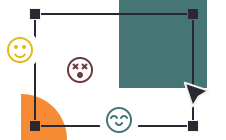Always Be Learning




The Always Be Learning retrospective format is designed to help spread knowledge within your team, but it can also be used to have a strong impact across the entire organization.
Why would you want to foster a learning culture?
Group learning is important as it cultivates a rich tapestry of diverse perspectives, encourages collaboration that deepens understanding, and provides a social framework for mutual support.
Learning as a team helps develop essential skills like effective communication and teamwork, which are, as you may imagine, crucial for success in various aspects of a team's life.
"A learning culture equips employees with a growth mindset, an appetite for risk-taking and embracing change as an opportunity for growth." (British Council, 2023)
How does this retrospective help foster a learning culture?
The "Always Be Learning" retrospective helps foster a culture of continuous improvement by:
- facilitating knowledge sharing,
- building a supportive team environment,
- prompting reflection on individual and collective learning experiences.
- encouraging proactive goal-setting,
- and ingraining a mindset of adaptability and accountability,
How does the Always Be Learning retrospective work? (with examples!)
What I learned - What did I learn?
Reflect on and share a key insight or skill acquired recently.
e.g., I learned effective time management through handling multiple work projects simultaneously.
What I want to learn - What's on my learning wishlist?
Share your learning goals and interests to create a supportive environment for collaborative learning.
e.g., I want to learn Python to diversify my programming skills.
What I could teach - What could I teach others about?
Highlight areas of expertise you're open to sharing.
e.g., I could teach social media strategies and content creation based on my experience in digital marketing.

The 3 elements of Always Be Learning






